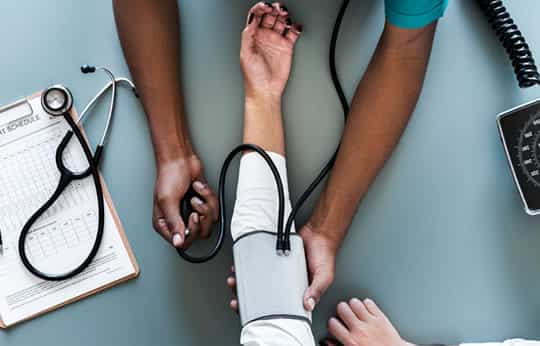High blood pressure puts extra pressure on internal organs like the heart, brain and kidneys.
Poor sleep can be a sign of high blood pressure, research reveals.
A lack of deep sleep is a particularly strong sign of the condition.
Without deep sleep during the night, people often do not feel refreshed despite sleeping for 7-9 hours.
High blood pressure puts extra pressure on internal organs like the heart, brain and kidneys, all of which worsen sleep.
Lack of sleep, in turn, can make it harder for the body to regulate stress hormones, which leads to high blood pressure.
Signs of poor sleep include more awakenings during the night, shorter sleep duration and sleep apnea.
Sleep apnea causes shallow breathing or breathing to stop for a few seconds during sleep.
The conclusions come from a study of 784 men over 65 who were followed for an average of 3.5 years.
The results showed that men who spent less time in the deepest phase of sleep were significantly more likely to develop high blood pressure later on.
Professor Susan Redline, study co-author, said:
“Our study shows for the first time that poor quality sleep, reflected by reduced slow wave sleep, puts individuals at significantly increased risk of developing high blood pressure, and that this effect appears to be independent of the influence of breathing pauses during sleep.”
Professor Redline said that while women were not included in the study, the results would probably be the same for them.
Professor Redline continued:
“People should recognize that sleep, diet and physical activity are critical to health, including heart health and optimal blood pressure control.
Although the elderly often have poor sleep, our study shows that such a finding is not benign.
Poor sleep may be a powerful predictor for adverse health outcomes.
Initiatives to improve sleep may provide novel approaches for reducing hypertension burden.”
The study was published in the journal Hypertension (Fung et al., 2011).

